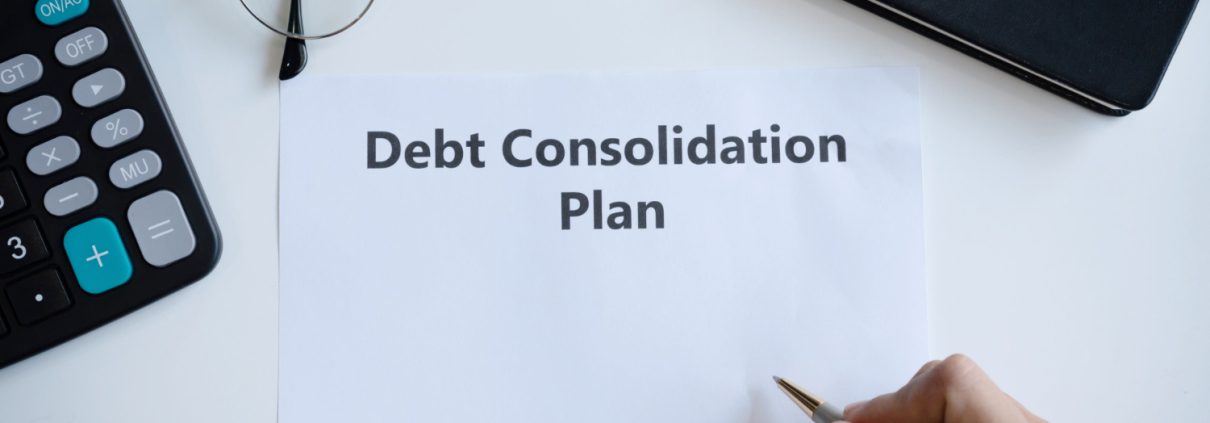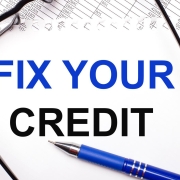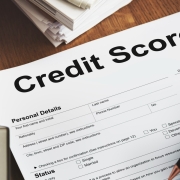How Does Debt Consolidation Affect Your Credit Score? The Pros and Cons of Consolidation
This blog sets out to answer your questions about how debt consolidation affects your credit score! Debt consolidation is a financial strategy that individuals often turn to when facing multiple outstanding debts. It involves combining various debts, such as credit card balances or loans, into a single monthly payment. This can simplify financial management and potentially lead to lower overall interest rates. However, one aspect individuals should be aware of is how debt consolidation can impact their credit score. Throughout this discussion, we will cover what debt consolidation is, its pros and cons, and what’s involved in the process in order to help you understand the ins and outs of how the financial strategy of debt consolidation can affect your credit score.
What Is Debt Consolidation?
Debt consolidation is an approach designed to help individuals manage multiple outstanding debts reasonably. This financial strategy involves combining your various debts, such as credit card debts, personal loans, or medical bills, into a single debt that you would pay off monthly. Instead of juggling multiple payments, due dates, and various interest rates, debt consolidation is a tool to simplify those debts into a bill that is less burdensome.
What Does Debt Consolidation Do To Your Credit Score?
Debt consolidation can help or hurt your credit score, depending on how you go about it. Follow along for a closer look:
How Debt Consolidation Can Help Your Credit Score
Your credit score can be positively affected by debt consolidation in several ways:
Simplified Payment Structure:
- By consolidating multiple debts into a single monthly payment helps limit the potential for payments to be missed. Since timely payments are a highly influential aspect of your credit score, making these payments consistently will reflect positively on your credit history.
Reduced Credit Utilization:
- If you use a consolidation loan or balance transfer credit card, it may increase the amount of credit you have available overall. This can lead to a lower credit utilization ratio, which is the amount of credit you’re using compared to your total available credit. Keeping this ratio low is another way debt consolidation can positively influence your credit score.
Potential Lower Interest Rates:
- Deciding to secure a consolidation loan with a lower interest rate than the average rate of your existing debts may result in you paying less interest over time. This strategy can make it easier to pay down your debt faster and raise your credit score.
Diversify Credit Mix:
- Having different types of credit, like installment loans (like a consolidation loan) and revolving credit (like credit cards), can contribute to a more diversified credit mix, which can potentially improve your overall credit profile.
Rebuilding Credit History:
- For those with a history of missed payments or financial challenges, successfully managing a debt consolidation plan can be a progressive step toward rebuilding their credit history. Consistent and on-time payments are key to a healthier financial profile with a higher credit score.
How Debt Consolidation Can Hurt Your Credit Score
While debt consolidation can have positive effects on your credit score, it is important to be aware of the potential drawbacks that could end up harming your score:
Hard Inquiries:
- When you apply for a debt consolidation loan or a new credit card for a balance transfer, the lender will typically conduct what is referred to as a high inquiry on your credit report. While a single inquiry has a minor impact, multiple inquiries within a short period of time can lower your credit score.
Closing Old Accounts:
- If you choose to close some of the accounts you’ve consolidated, it could shorten your credit history. The length of your credit history is a factor in determining your creditworthiness and closing older accounts may have a negative impact.
Initial Dip in Credit Score:
- In the short term, your credit score may experience a slight dip after consolidating debt. This is because the new loan or credit card is considered new credit and so the algorithm may take some time to adjust to this change.
Risk of Accumulating New Debt:
- Debt consolidation rearranges your existing debt, but it does not eliminate it. If you continue to accumulate new debt without addressing the root cause of financial stress, it can negatively impact your credit score over time.
Defaulting on Repayment:
- There can be a potential for default if you struggle to make payments on the new consolidated debt. If you continue to take on new debt without a strategy to address the root causes and end up defaulting, this can harm your credit score and have long-lasting effects.
Ways To Consolidate Your Debt
- Debt Consolidation Loan:
- How it works: Obtain a personal loan to pay off multiple existing debts. This new loan typically has a fixed interest rate and a defined repayment period.
- Advantages: Simplifies payments with a single monthly installment. May offer a lower interest rate compared to existing debts. Fixed repayment terms provide clarity on when the debt will be fully paid off.
- Considerations: Approval and interest rates depend on your credit score. Closing old accounts may impact the length of your credit history.
- Balance Transfer Credit Card:
- How it works: Transfer balances from high-interest credit cards to a new card with a lower or 0% introductory interest rate, usually for a specified period.
- Advantages: Potential for lower interest rates during the introductory period. Consolidates multiple credit card balances into one.
- Considerations: Introductory rates are temporary, and a higher rate may apply afterward. Balance transfer fees may apply. Requires discipline to pay off the balance before the introductory period ends.
- Debt Management Plan (DMP):
- How it works: Enroll in a debt management program through a credit counseling agency. The agency negotiates with creditors to lower interest rates and consolidate payments into one monthly amount.
- Advantages: Professional assistance in negotiating with creditors. Lower interest rates may be negotiated, reducing the total amount paid. Single monthly payment to the credit counseling agency.
- Considerations: May take several years to complete the program. Enrollment may be noted on your credit report. Not suitable for all types of debts.
- Home Equity Loan or Line of Credit:
- How it works: Use the equity in your home to secure a loan or line of credit to pay off high-interest debts.
- Advantages: May offer lower interest rates compared to unsecured loans. Interest may be tax-deductible in some cases.
- Considerations: Puts your home at risk if you can’t make payments. Closing costs and fees may apply.
- Peer-to-Peer Lending:
- How it works: Borrow from individuals through a peer-to-peer lending platform to pay off existing debts.
- Advantages: Potentially lower interest rates compared to traditional lenders. Flexible terms based on individual agreements with lenders.
- Considerations: Approval depends on your creditworthiness. Fees and interest rates vary between platforms. Before choosing a consolidation method, carefully evaluate your financial situation, consider associated costs, and understand the impact on your credit score.
Should You Consolidate Your Debt With A Personal Loan?
Here’s a pros and cons list to help you evaluate the option of consolidating your debt with a personal loan:
PROS:
Simplified Payments:
Pro: Combining multiple debts into a single personal loan can simplify your monthly payments, making it easier to manage.
Potentially Lower Interest Rates:
Pro: If you qualify for a personal loan with a lower interest rate than your existing debts, you could save money on interest payments over the life of the loan.
Fixed Repayment Terms:
Pro: Personal loans often come with fixed repayment terms, providing a clear and predictable timeline for becoming debt-free.
Predictable Monthly Payments:
Pro: With a fixed interest rate, your monthly payments remain consistent throughout the loan term, making it easier to budget.
Credit Score Improvement:
Pro: Successful debt consolidation and timely payments on the personal loan can positively impact your credit score over time.
Flexible Use of Funds:
Pro: Personal loans generally provide flexibility in how you use the funds, allowing you to pay off various types of debts.
CONS
Creditworthiness Requirement:
Con: Your eligibility for a personal loan and the interest rate offered depend on your credit score. Those with lower credit scores may face higher interest rates or struggle to qualify.
Loan Terms and Fees:
Con: Personal loans may come with origination fees, prepayment penalties, or other associated costs. It’s essential to carefully review the terms to avoid unexpected expenses.
Risk of Accumulating New Debt:
Con: Consolidating with a personal loan doesn’t eliminate the root causes of debt. There’s a risk of accumulating new debt if spending habits are not addressed.
Temporary Impact on Credit Score:
Con: The debt consolidation process may result in a temporary dip in your credit score due to the hard inquiry and the new credit account.
Unsecured Nature of the Loan:
Con: Personal loans are typically unsecured, meaning they are not backed by collateral. If you default, the lender has limited recourse compared to secured loans.
May Not Solve Underlying Issues:
Con: Consolidating debt is a tool, not a solution. If the root causes of your debt issues, such as overspending, are not addressed, you may find yourself back in a similar situation.
Is Debt Consolidation A Path Forward?
Before deciding, carefully weigh these pros and cons based on your individual circumstances. Additionally, compare loan offers from different lenders to find the most favorable terms for your debt consolidation needs. If you have any uncertainties, seeking advice from a financial professional can provide personalized insights.







